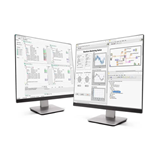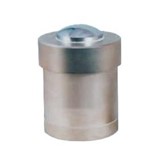Methane is an extremely potent greenhouse gas that is created by wetlands, termites, oceans, freshwater bodies and non-wetland soils.
However, the majority of methane production can be accredited to human-related activities such as fossil fuel production, biomass burning, waste management and animal husbandry.
A large portion of greenhouse gas emissions in Australia is caused by methane emissions by livestock, which is also a significant worldwide phenomenon.
Associate Professor Kourosh Kalantar-zadeh, from the School of Electrical and Computer Engineering, and Professor Andy Ball from the School of Applied Sciences, are collaborating with researchers at CSIRO and the Queensland University of Technology (QUT) to find ways of mitigating these emissions.
Associate Professor Kalantar-zadeh said there was currently no commercial methane gas sensor that had been customised for optimum sensing of gas in carbon farming processes.
"If no solution is found the agriculture industry will face serious difficulties in the next few years," Kalantar-zadeh said.
"This three-year project intends to develop low-cost polymeric nanomaterial composite membranes that can efficiently target the methane gas and determine the diffusion rates of selected gases while allowing for simultaneous sampling for microbial analyses."
Professor Xinghuo Yu, Director of the RMIT Platform Technologies Research Institute, said sustainability and climate change were among the most critical issues facing society.
"RMIT's researchers have the capability and expertise to address climate change issues and develop new technologies to measure the emissions of greenhouse gases such as methane," he said.
"Carbon tax on methane emissions will affect productivity in the agricultural sector and, as a consequence, the Australian economy.
"Improved technologies in management of emissions can reduce the effects of the carbon tax."
From 1 July, the Federal Government will be imposing a carbon tax on carbon dioxide but not on methane emissions. These emissions may also attract a tax in future.








